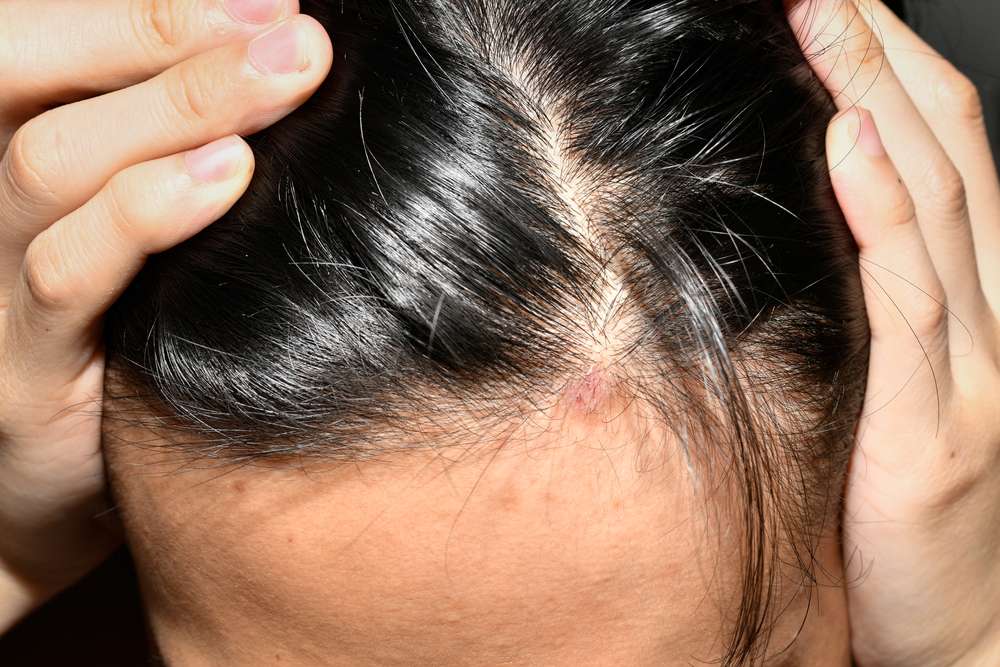Effective Strategies for Managing Dandruff and Protecting Scalp Health
Dandruff can be more serious than many realize, affecting scalp health, confidence, and daily comfort. This article provides practical tips for managing flakes, choosing treatments wisely, and maintaining a healthy scalp, helping readers understand the key factors behind effective care.

Dandruff affects approximately 50% of the adult population worldwide at some point in their lives. This common scalp condition manifests as white or yellowish flakes on the scalp and hair, often accompanied by itching and irritation. While many consider dandruff merely a cosmetic nuisance, it can significantly impact quality of life and self-confidence. Fortunately, with proper understanding and consistent care, most cases of dandruff can be effectively managed and controlled.
Why Dandruff Should Not Be Ignored
Ignoring persistent dandruff can lead to more than just embarrassing flakes on your shoulders. Untreated dandruff may worsen over time, causing increased scalp inflammation, discomfort, and even hair loss in severe cases. The constant scratching that often accompanies an itchy scalp can damage hair follicles and create open wounds susceptible to infection.
Beyond physical discomfort, the psychological impact of visible dandruff shouldn’t be underestimated. Many individuals report decreased confidence in social and professional settings, sometimes leading to avoidance behaviors that affect their quality of life. Additionally, severe dandruff may be a symptom of underlying conditions like seborrheic dermatitis, psoriasis, or fungal infections that require medical attention.
Early intervention with appropriate dandruff management not only addresses the visible symptoms but also helps maintain overall scalp health, preventing potential complications down the road.
Choosing the Right Dandruff Treatment
Selecting an effective dandruff treatment begins with understanding the potential causes of your specific condition. Common anti-dandruff active ingredients include zinc pyrithione, which has antimicrobial properties; ketoconazole, which fights fungal infections; coal tar, which slows skin cell turnover; selenium sulfide, which reduces fungus and cell turnover; and salicylic acid, which helps remove scale buildup.
For mild cases, over-the-counter medicated shampoos containing these ingredients often provide sufficient relief when used regularly. It’s advisable to rotate between different active ingredients if one becomes less effective over time. For moderate to severe cases, prescription-strength formulations may be necessary.
Natural alternatives have also gained popularity, with ingredients like tea tree oil, aloe vera, and apple cider vinegar showing promising results for some individuals. However, these should be approached with caution, as natural doesn’t always mean gentle—some natural remedies can cause irritation or allergic reactions in sensitive individuals.
The most effective approach often involves trial and error, as dandruff causes vary among individuals. When selecting products, consider your hair type, scalp sensitivity, and the severity of your condition. Those with naturally dry scalps may benefit from more moisturizing formulations, while oily scalps might require stronger clarifying products.
Daily Practices for a Healthy Scalp
Maintaining scalp health extends beyond specialized dandruff treatments to encompass daily hair care habits. Regular shampooing is crucial for removing excess oil, dead skin cells, and product buildup that can exacerbate dandruff. For most people with dandruff, washing hair daily or every other day with a gentle, pH-balanced shampoo helps manage symptoms.
Proper washing technique matters significantly—focus on massaging the scalp rather than just the hair strands. This stimulates circulation and helps lift away flakes. Rinse thoroughly, as shampoo residue can irritate the scalp and contribute to flaking.
Diet and hydration also play important roles in scalp health. Consuming adequate water and a balanced diet rich in omega-3 fatty acids, zinc, B vitamins, and antioxidants supports skin cell regeneration and reduces inflammation. Foods like fatty fish, nuts, seeds, and plenty of fruits and vegetables contribute to healthier scalp conditions.
Stress management deserves attention as well, as psychological stress can trigger or worsen dandruff flares. Regular exercise, adequate sleep, and relaxation techniques like meditation may indirectly improve scalp health by reducing overall stress levels.
Environmental factors also impact scalp condition. Protect your scalp from excessive sun exposure, avoid harsh hair products containing alcohols and sulfates, and be mindful of hat use—while hats protect from sun damage, they can also trap heat and moisture, creating favorable conditions for dandruff-causing microorganisms.
When to Seek Professional Advice
While many cases of dandruff respond well to over-the-counter treatments and improved hair care routines, certain situations warrant professional medical attention. Consider consulting a dermatologist if your dandruff persists despite consistent use of medicated shampoos for several weeks, or if it’s accompanied by severe redness, swelling, or pain.
Excessive scalp inflammation that extends beyond the hairline to the face, ears, or neck may indicate seborrheic dermatitis rather than simple dandruff. Similarly, thick, silvery scales that are difficult to remove might suggest psoriasis, which requires different treatment approaches.
Hair loss occurring alongside dandruff is another reason to seek professional evaluation, as this combination may indicate a more serious condition. Individuals with compromised immune systems should be particularly vigilant about scalp issues, as they may be more susceptible to fungal overgrowth and other complications.
A dermatologist can provide accurate diagnosis through scalp examination and possibly skin scrapings or biopsies if necessary. They can prescribe stronger medicated shampoos, topical steroids, or oral medications based on the specific underlying cause of your scalp condition.
Comparing Common Dandruff Treatment Options
When selecting dandruff treatments, understanding the differences between available options helps make informed decisions tailored to your specific needs.
| Treatment Type | Active Ingredients | Best For | Average Cost Range |
|---|---|---|---|
| Pyrithione Zinc Shampoos | Zinc Pyrithione | Mild to moderate dandruff | $5-15 |
| Ketoconazole Shampoos | Ketoconazole | Fungal-related dandruff | $8-25 |
| Coal Tar Formulations | Coal Tar | Scalp psoriasis, severe flaking | $7-20 |
| Selenium Sulfide Products | Selenium Sulfide | Oily scalps with yellowing scales | $6-18 |
| Salicylic Acid Treatments | Salicylic Acid | Scale buildup, thick crusts | $8-22 |
| Prescription Solutions | Various medical compounds | Resistant cases, confirmed conditions | $30-120 |
| Natural Remedies | Tea tree oil, aloe vera | Mild cases, maintenance | $10-30 |
Prices, rates, or cost estimates mentioned in this article are based on the latest available information but may change over time. Independent research is advised before making financial decisions.
The frequency of use varies by product and severity of condition. Most medicated shampoos require application 2-3 times weekly initially, then can be reduced to once weekly for maintenance once symptoms improve. Prescription treatments typically come with specific usage instructions from healthcare providers.
Effectiveness timelines differ as well—some people notice improvement within days, while others may require several weeks of consistent treatment. Combining approaches, such as alternating between different active ingredients, often yields better results than relying on a single treatment method.
Dandruff management is typically ongoing rather than curative. Many individuals find that their dandruff returns when treatment is discontinued, necessitating a maintenance routine. Working with healthcare providers to develop a personalized scalp care regimen offers the best chance for long-term control and scalp health.
This article is for informational purposes only and should not be considered medical advice. Please consult a qualified healthcare professional for personalized guidance and treatment.




